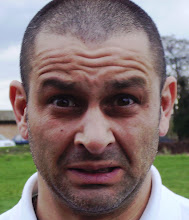Liberal Democrats need to give the media something to talk about if they want their message to get more coverage, says their Preston parliamentary candidate. Councillor Mark Jewell, also head of Preston City council’s Economic Scrutiny committee, feels Liberal Democrats don’t get the press they deserve but also need to get past people’s perceptions of Liberals.

The Message
“For me, what defines a Liberal is someone who believes that decision making should be made at the lowest practical level,” says Cllr Jewell. “It’s certainly not just about the individual – I associate that with Conservatism.”
“It’s someone who believes that not every decision should be made from the centre and, as such, believes in the freedom of the individual. And someone who protects those freedoms of the individual against the overpowering imposition of the state.”
“I think your political Liberal is different from your personal behaviour liberal and perhaps, I don’t know, there’s a perception there in people’s minds. But in terms of ‘does Liberalism get a fair crack of the whip in the press’ - probably not.”
Liberal Democrats aren’t the only party claiming the Liberal platform though. There’s still a Liberal party alive and kicking and proudly independent from the Liberal Democrats.
Sold Out
Their national president is Liverpool City councillor Steve Radford, someone who believes Liberal Democrats sold out the Liberal message in pursuit of high office. Cllr Radford feels the national media’s reluctance to engage the Liberal message is not, as has been suggested by some, because Liberals are ‘woolly minded’ and indecisive.

“It’s very difficult to get our message across because of the way the media presents Liberalism,” says Cllr Radford. “I think the media sees Liberalism as a threat and uses the term in a derogatory way.”
“Nobody’s ever accused Steve Radford of being ‘woolly minded’. I think that was the David Steel era of creating a woolly mess when he created the LibDems.”
“The party that I’m a councillor for said, 'we are the body to militantly protect Liberalism'. We believe in a society where individuals should have liberty, properties and security. The Liberal Democrats are like a weather vane. They change their opinions with the wind.”
To use a football analogy, the Liberals are AFC Wimbledon to the Liberal Democrats’ Milton Keynes Dons.
Split
“In 1988 our local association had a meeting and we decided to remain as Liberals,” says Cllr Radford. “We didn’t have a problem working with people who wanted to join the new party, but we didn’t want to join a party committed to social democracy.”
“If I’d have wanted to be a social democrat I could have joined the Labour party. Why remain a Liberal for decades in political isolation, to then defect to something different?”
“You’ve got to have a principle about saying that is where we want to go and they are our values. Sometimes you have to actually stick to your principles when it’s unpopular.”
Quisling
Cllr Radford calls the Liberal leader at the time of the merger with the SDP, David Steel, a “Quisling” - not an ideological Liberal, but one using the party for his own means.
“Being a Liberal is not an easy viewpoint, it’s got some sophisticated views, which are often not popular. It is not about seeking office per se, it’s a set of beliefs about the type of society we want to see. I believe Steel wanted to create a party much akin to the American Democrats.”
His opinion makes sense when similarities between Liberal Democrats and American Democrats are raised with Mark Jewell.
“We had a delegation of our parliamentarians who went to the Democrat conference in America,” says Cllr Jewell. “There is an association with the Democrats in America in the sense that, whilst respecting the freedoms of the individual, there is a role for communities, society and the state to play at an appropriate level.”
Punch and Judy
Although LibDems took more than a fifth of the national vote in the last general election and a quarter of it in the last local government elections, Liberalism struggles to hold the media’s gaze.
Cllr Jewell feels Liberal Democrats miss out because they try to keep to the issues and don’t get involved in political point scoring.
He says: “It does seem to be Punch and Judy politics - you say something and I’ll bash you, I’ll say something and you bash me - which has been perpetuated by the media. It’s not that the papers are not taking on my story, it’s more that if there’s a storyline there, and more importantly one that helps them sell papers, then they will print you.”
Click here to read the Liberal Democrat policy document.
Take Look At Some Of The Key Points In Liberal History, Below:




No comments:
Post a Comment